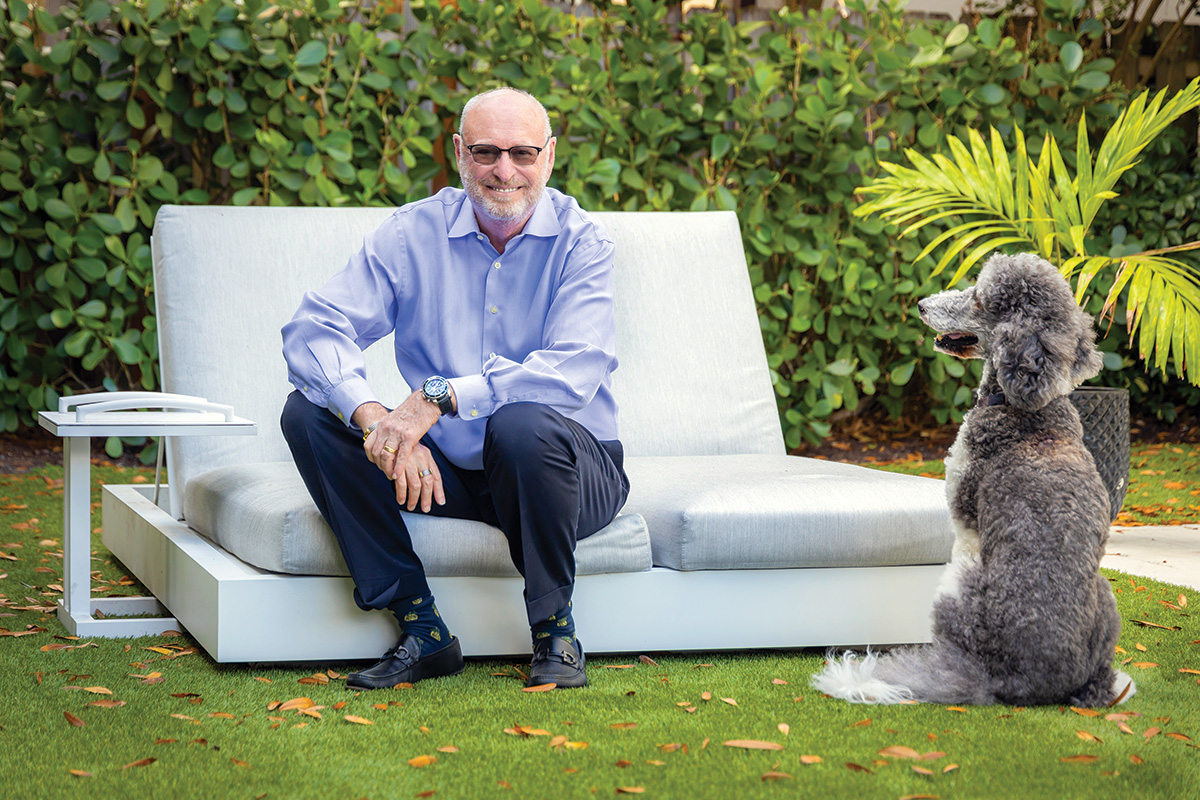April 2025 | Mike Vogel
Florida’s divorce rate dropped by more than half over the last three decades, from 6.3 per 1,000 people in 1990 to 3.1 per 1,000 in 2022, mirroring a national trend toward fewer divorces. Even amid that decline, the failure rate for Florida’s 12.9 million married couples still provides plenty of breakup business for Florida’s family law attorneys — and room to specialize.
Boca Raton attorney Joel Feldman specializes in high-net-worth cases. Military divorce is a niche for Autumn Beck Blackledge, a family law attorney in Pensacola, which is home to a large U.S. Navy base. Others are skilled in same-sex separations, divorces for women or men, or the growing movement called “collaborative” divorce.
Attorneys across Florida shared how they found their niche — or how it found them — and some of the divorce stories that define their profession.
Big Money, Big Stakes
The Attorney: Joel Feldman
The Niche: High earners
Here’s the thing about high-net-worth divorce lawyers. Pretty much all family law attorneys say they are one. Just do an internet search of the phrase.
But there are ways to parse the real from the wannabe. Celebrity divorces can reveal the real. Various legal industry rankings can offer a clue. Or you can ask a guy like Boca Raton attorney Joel Feldman to prove it. For Florida Trend, without spilling client identities, he provides a trove of examples — doctors with tens of millions, the owner of an energy concern worth $450 million, a services company owner who post-divorce sold the business for $85 million. And then there are the professional football, baseball and hockey players — though those largely are paternity cases. (A tax advisory company referred an athlete client to Feldman for representation on a paternity case, and that led to others.)
Feldman got his undergrad in 1976 from Georgetown — a phone call for this article caught him in D.C. where he was heading to a basketball game — and he’s on the Georgetown Board of Governors’ alumni association. He earned his law degree from Duke University in 1979. He has a long list of community service and pro bono work. He also is rated AV and “Preeminent in Family Law” by Super Lawyers, meaning that he’s recognized as a top attorney in his field. He’s a partner in the Boca Raton office of Schwartz Sladkus Reich Greenberg Atlas.
Early on, Feldman was fairly generalized in his law practice — civil litigation, real estate — as he gained insight into business valuation and corporate law. In the late 1980s, an accountant asked him to represent him in a divorce. His side didn’t do great at trial, but Feldman won on appeal over a significant issue of valuing “good will” as a marital asset. (He can give you chapter and verse on the subject.)
“That really got me started in the divorce and the business side of divorce,” he recalls. Now, 95% of his practice is family law — divorce and its financial and parental custody considerations, paternity (those busy athletes) and pre-nups and post-nups.
In an interview, he drops nuggets of insight like the failure rate for first (50%), second (66%) and third marriages (73%). Or how difficult it is in those paternity cases to pry info from the pro sports leagues. High-net-worth divorces are complex because they frequently involve a business and how to value it.
“I think we get more, older high-net-worth people, particularly in South Florida, than other states,” Feldman says. Florida legislation lets couples keep their financials out of the court files. He’s representing a spouse in an investment firm case. The numbers are big but because they can be kept private under Florida law and the party names are otherwise meaningless, the case is passing under the public radar.
If you’re wondering, he’s been married for 30-plus years to labor and employment attorney Cheryl Wilke.
Feldman occasionally gets asked about how it feels to work in an arena that can get ugly between people. His answer comes from his outlook and faith, but he condenses it down to this: “You’re helping out people. In family law, you’re seeing good people at their worst. I’m helping good people at one of the worst times of their lives.”













